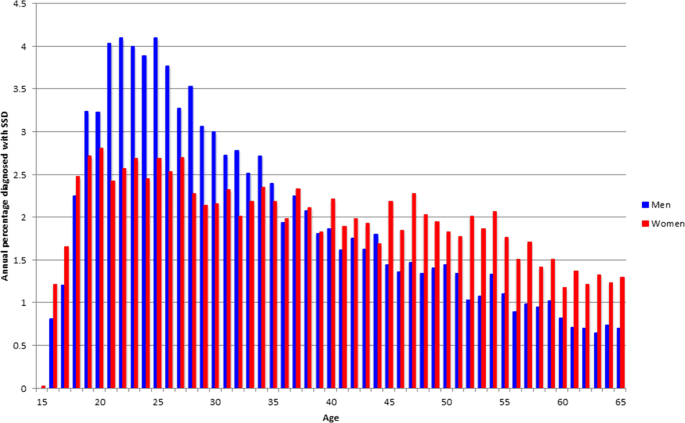Schizophrenia Assessment Test
3 Min Free Schizophrenia Assessment Test
Who Can Benefit From This Schizophrenia Assessment Test?
This schizophrenia assessment test can be beneficial for anyone who is interested in assessing their level of symptoms related to schizophrenia or identifying potential issues that require further evaluation by a mental health professional. Schizophrenia is a serious mental illness that affects the way a person thinks, feels, and behaves, and can impact various areas of life, including relationships, work, and social functioning.
Individuals who are experiencing symptoms related to schizophrenia, such as delusions, hallucinations, disordered thinking, or changes in behavior or emotions, may find this test particularly helpful in identifying areas for improvement or potential issues that require further evaluation. Additionally, those who have a family history of schizophrenia or are at high risk for the disorder may benefit from taking this test.

Schizophrenia Assessment Test Accuracy

The accuracy of a schizophrenia assessment test can vary depending on several factors, including the specific test used, how the test is administered, and the individual taking the test.
Schizophrenia assessment tests are designed to assess various aspects of schizophrenia, such as the presence of delusions, hallucinations, or disordered thinking. While these tests can provide a useful starting point for individuals who want to assess their level of symptoms related to schizophrenia, it’s important to recognize that no single test can fully capture all aspects of the disorder.
Additionally, it’s important to consider that self-report measures, such as schizophrenia assessment tests, may be influenced by factors such as social desirability bias or response bias, meaning that individuals may respond in a way that they think is socially desirable or that they believe will produce a certain result.
Types of Schizophrenia Assessment Test
Structured Clinical Interview for DSM (SCID):
This is a diagnostic tool used by mental health professionals to diagnose various mental health conditions, including schizophrenia. It is a structured interview that assesses various aspects of schizophrenia symptoms.
Brief Psychiatric Rating Scale (BPRS):
This is a standardized rating scale that assesses the severity of various symptoms related to schizophrenia, including hallucinations, delusions, and disordered thinking.
Positive and Negative Syndrome Scale (PANSS):
This is a tool used to assess the presence and severity of positive (hallucinations and delusions) and negative (anhedonia and avolition) symptoms of schizophrenia.
Scale for the Assessment of Negative Symptoms (SANS):
This is a tool that assesses the severity of negative symptoms associated with schizophrenia, such as lack of emotion and motivation.
Scale for the Assessment of Positive Symptoms (SAPS):
This is a tool that assesses the severity of positive symptoms associated with schizophrenia, such as hallucinations and delusions.
Wisconsin Card Sorting Test (WCST):
This is a test that measures cognitive flexibility and executive function, which can be affected by schizophrenia.
Treating Schizophrenia
Treating schizophrenia typically involves a combination of medications, psychotherapy, and supportive services, depending on the individual’s needs and symptoms. Here are a few common strategies:
- Psychotherapy: Psychotherapy, such as cognitive-behavioral therapy (CBT), can be effective in treating symptoms related to schizophrenia. CBT can help individuals develop coping skills for managing symptoms, improve communication, and address issues related to social functioning.
- Supportive services: Supportive services, such as vocational or educational support, can help individuals with schizophrenia develop skills and gain independence.
- Family and social support: Developing positive relationships with supportive individuals, such as family members or friends, can help improve outcomes and reduce the risk of relapse.
- Hospitalization: In severe cases, hospitalization may be necessary to manage symptoms and ensure safety.
- Complementary therapies: Complementary therapies, such as mindfulness or exercise, may also be helpful in managing symptoms and improving overall well-being.

